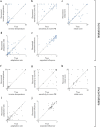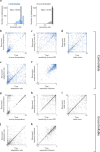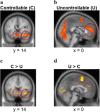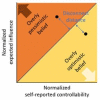Humans use forward thinking to exploit social controllability
- PMID: 34711304
- PMCID: PMC8555988
- DOI: 10.7554/eLife.64983
Humans use forward thinking to exploit social controllability
Abstract
The controllability of our social environment has a profound impact on our behavior and mental health. Nevertheless, neurocomputational mechanisms underlying social controllability remain elusive. Here, 48 participants performed a task where their current choices either did (Controllable), or did not (Uncontrollable), influence partners' future proposals. Computational modeling revealed that people engaged a mental model of forward thinking (FT; i.e., calculating the downstream effects of current actions) to estimate social controllability in both Controllable and Uncontrollable conditions. A large-scale online replication study (n=1342) supported this finding. Using functional magnetic resonance imaging (n=48), we further demonstrated that the ventromedial prefrontal cortex (vmPFC) computed the projected total values of current actions during forward planning, supporting the neural realization of the forward-thinking model. These findings demonstrate that humans use vmPFC-dependent FT to estimate and exploit social controllability, expanding the role of this neurocomputational mechanism beyond spatial and cognitive contexts.
Keywords: computational modeling; controllability; forward thinking; human; model-based planning; neuroscience; social decision-making; vmPFC.
© 2021, Na et al.
Conflict of interest statement
SN, DC, AH, OP, JJ, MH, SB, VF, PD, XG No competing interests declared
Figures


























References
-
- Becker GS. The Economic Approach to Human Behavior. University of Chicago press; 2013.
Publication types
MeSH terms
Grants and funding
LinkOut - more resources
Full Text Sources

